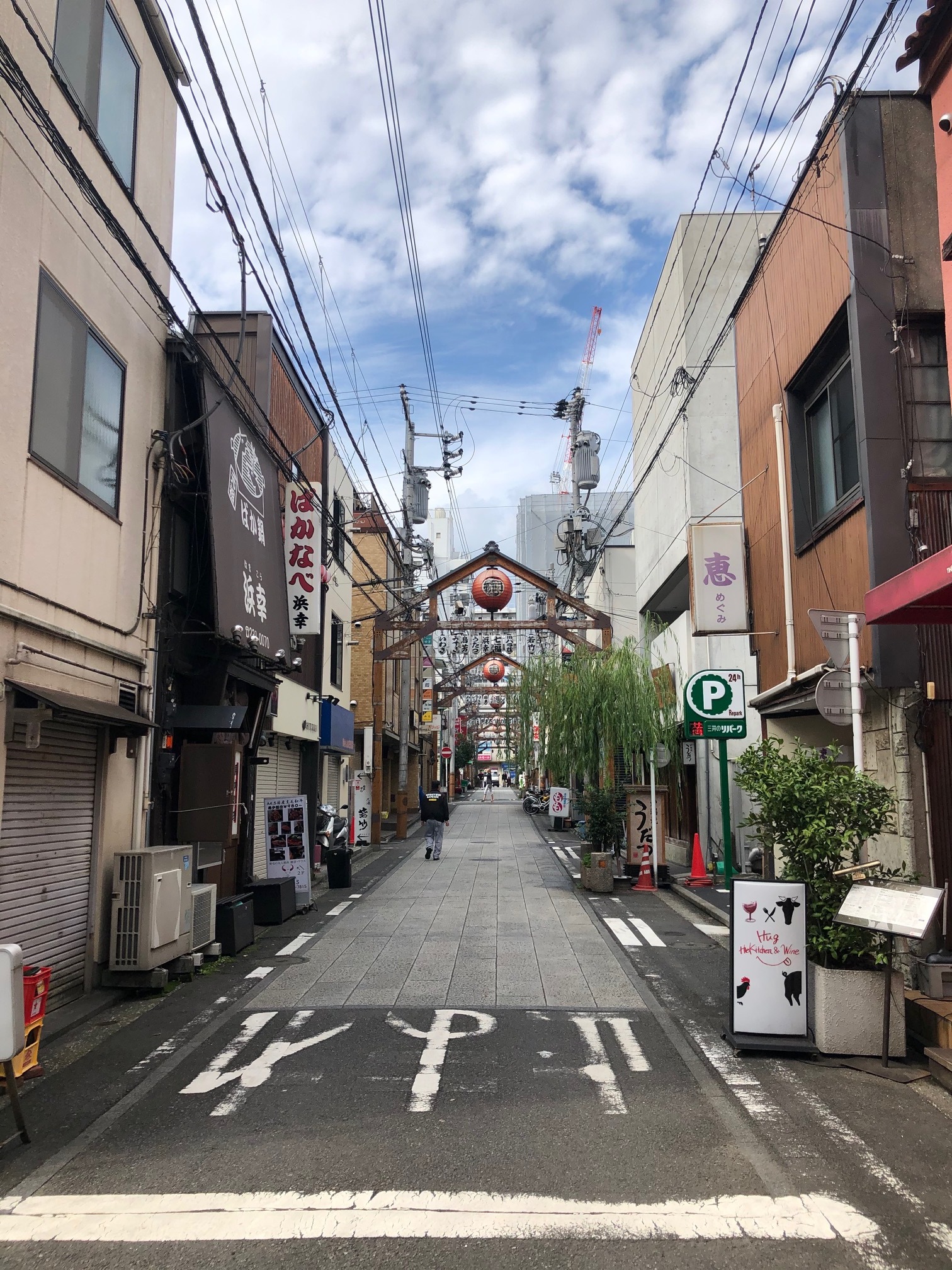Award-winning immigration attorney Fiona McEntee (and friend of the firm) has written a children’s book about immigrants. As an immigrant herself and mother of two young children, Fiona wrote Our American Dream to “help explain the importance of a diverse and welcoming America.” The book, the first in a series, celebrates immigrant stories and is inspired by Fiona’s real-life clients, family, and friends, including a Syrian refugee working in Congress, a ”Dreamer” hoping for a Green Card, and a painter from Russia using her extraordinary talent to achieve the American dream. McEntee explained the book came about after she failed to find a book about immigration that she could read to her daughter’s class. “I looked for a book that reflected what has been going on with the types of immigration issues I was dealing with and that children might be hearing about in the news,” she told the Chicago Tribune. “There are a number of good books about immigrants but usually they are focused on a specific story. I thought there should be a book for kids that concentrated on immigration in positive ways.” I read the book with my own son this week and he said he thoroughly enjoyed it. (Okay, he can’t talk yet but he did make some delighted noises!) A portion of the book’s proceeds will be donated to FWD.us I Stand With Immigrants Initiative, as well as to the American Immigration Council.
USCIS Implements $10 Fee for H-1B Visa Registration
US Citizenship & Immigration Services (USCIS) announced a final rule last week that will require petitioning employers to pay a $10 non-refundable fee for each H-1B registration they submit for the H-1B electronic registration system. The agency plans to implement the H-1B registration process for the fiscal year 2021 H-1B cap selection process, assuming successful testing of the system. With this H-1B electronic registration system, petitioners seeking to file H-1B cap-subject petitions, including advanced degree exemption cases, will first electronically register with USCIS during a designated registration period (unless the requirement is suspended). If the electronically registered case is selected in the lottery, then the petitioner will file the H-1B petition.
“This effort will help implement a more efficient and effective H-1B cap selection process,” USCIS Acting Director Ken Cuccinelli said in a statement. “The electronic registration system is part of an agency-wide initiative to modernize our immigration system while deterring fraud, improving vetting procedures and strengthening program integrity.” The final rule will be effective December 9, 2019, and the fee will be required when registrations are submitted. USCIS will announce the timeframe for the implementation and initial registration period in the Federal Register once a formal decision has been made, and the agency indicates that they will offer “ample notice to the public in advance of implementing the registration requirement.”
Same Amount Of Possible
Carolyn's Trip to Japan
Our trip to Japan was magical. From seeing the stunning Kinkakuji (Golden Pavilion) in Kyoto to eating oysters at the old Tsukiji Market in Tokyo to getting bit by the adorable deer at Nara Park, we had a wonderful time. While our trip coincided with the Rugby World Cup, and we were able to attend a few matches, the trip didn’t just consist of scrums and penalty kicks (yes, I know all the rugby terminology). We had an incredible time eating food and seeing architecture and admiring the peaceful and natural beauty of the countryside (and also made friends with the monkeys at Iwatayama Monkey Park). And yes, there was sake involved.
AILA: “Civil Rights Coalition Halts Implementation of Presidential Proclamation Requiring Health Insurance”
Last week, litigators from the Justice Action Center (JAC), the American Immigration Lawyers Association (AILA), and the Innovation Law Lab, with Sidley Austin LLP, filed suit in the US District Court for the District of Oregon to halt implementation of the Trump administration’s requirements for immigrant visa applicants to demonstrate to consular officers at the time of the interview that they will have health insurance within thirty days of entry to the US or have sufficient financial means to cover reasonably foreseeable medical costs. In response to the suit, Judge Michael Simon of the Federal District Court in Portland, Oregon, issued a nationwide temporary restraining order preventing the government from enforcing the proclamation that was set to go into effect Sunday, November 3. The court will consider the merits of the suit, Doe vs. Trump, in the coming days and weeks.
Read moreShoulder to Shoulder
Happy Halloween from DLG!
While the world of immigration law can be incredibly scary and, yes, even spooky all year round (think RFEs and NOIDs), this year a number of adventurous and creative staff members decided to dress up and celebrate the so-called scariest day of the year: Halloween (not H-1B cap filing day). Anthony dressed up as Snakes on a Plane (geometric plane, that is); Tricia was Robin from Stranger Things; Stevanica was a mouse; Alexis was Grungy Burt (no Ernie, sadly); and Oona (pictured lying down) was Dipsy from Teletubbies. In addition to costumes, everyone had candy on their desks for employees to trick or treat. Candy makes everything better—even RFEs and NOIDs! Happy Halloween, everyone!
USCIS Increasing Premium Processing Fee
US Citizenship & Immigration Services (USCIS) announced this week that beginning December 2, 2019, the agency is increasing the fee to request premium processing for certain employment-based petitions. The premium processing fee will increase to $1,440 (currently set at $1,410) for Form I-129, Petition for a Nonimmigrant Worker, and Form I-140, Immigrant Petition for Alien Worker. The agency notes that the premium processing fee was last increased in 2018 and that the increase “reflects the full amount of inflation from the implementation of the premium processing fee in June 2001 through August 2019 based on the Consumer Price Index for all Urban Consumers (CPI-U).” Premium processing is requested using Form I-907 and is an optional service for certain petitioners filing Forms I-129 or I-140. Filing a premium processing request with the additional fee will result in a fifteen-calendar day response time. USCIS.gov has additional information about filing cases via premium processing including filing addresses.
Dallas Morning News: “Here’s what immigrants contribute to your congressional district”
A new tool developed by New American Economy, a bipartisan research and advocacy organization supporting immigration policies that help grow the US economy, shows that immigrants are contributing billions of dollars in taxes and spending power to congressional districts across the United States. Andrew Lim, New American Economy’s director of quantitative research, said that he hopes that breaking down this data in this way makes it useful for representatives to understand their districts. “This is data that is tailored to their districts, which we know vary greatly from city and county boundaries,” Lim said.
New American Economy used American Community Survey data from the US Census Bureau through 2017 and examined spending and voting power for immigrants and also examined other factors, including home ownership, taxes paid, and the number of immigrant entrepreneurs in each district. Anyone can easily use the tool to look up information on districts or on a state-wide level. In New York District 12, for example, where our firm is located, the tool shows that immigrants make up 26.5% of the population, have paid $4.6B in taxes, and have a spending power of $10.4 billion. Other states, including Texas, also boost high numbers as well. The tool shows that state-wide in Texas immigrants make up about 17% percent of the population, have paid about $35 billion in taxes, and have a spending power of $109.9 billion. “The idea is to show that immigrants at the most familiar level are making giant contributions,” Lim said. “This data tells the story of how immigrants are living and that the conversation around immigration isn’t an abstract but is relevant to our everyday lives.”













